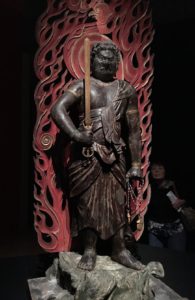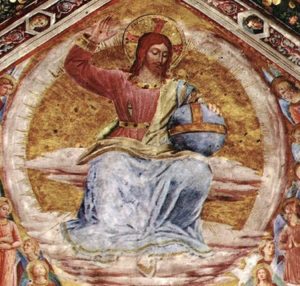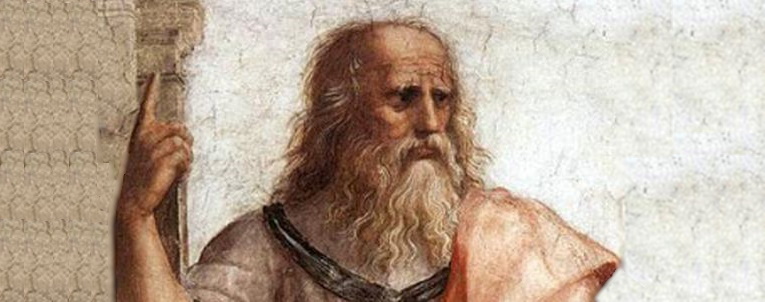Striving for Justice: the Steward’s Role
In teaching that man has no unity, the Fourth Way compares man to a house with many servants. The servants, unfortunately, have forgotten their duties, while the steward and master of the house are absent. The master represents one’s true identity, which is asleep. Taoism compares man with a country, in which citizens represent the many I’s and the ruler sometimes symbolizes the steward and at other times Real I.
The celestial is the ruler; this is higher, above. The earthly are the citizens; this is lower, below. — Liu Yiming, Hexagram #10 Treading, Taoist I Ching
Because Taoist texts do not explicitly state that the ruler is asleep, people don’t understand that it has an inner meaning referring to a man’s psychology. In addition, since the Chinese emperor was seen as the son of Heaven, it is taken it as a representation of China, with an enlightened emperor. The son of Heaven symbolizes the steward, who is the representative of Real I, and not divine itself.
The Balanced Strength of the Steward
Yang strength being balanced, the mind is correct and the body disciplined. This is like a king coming home and executing government, so that the land naturally becomes peaceful. This is unification of firmness and flexibility in refining the self. — Liu Yiming, Commentary on hexagram #37 – People in the Home

This image shows Fudo Myo, the Immovable King of Light. He has yang energy, which refers to strength and also to light. The right part of the Chinese ideograph for yang (陽—昜) contains the sun (日), and below the sun, light rays (勿). The image shows flames in the background, referring to the illumination of one’s inner world. Strength means that the steward is firmly keeping watch, so as to prevent the many I’s from interrupting self-awareness.
Human Mind and Celestial Mind
The illusory body is the body of flesh: the illusory mind is the human mind. As for the true body and the true mind, they are the dharma-body and the celestial mind. — Liu Yiming, Cultivating the Tao
The human or illusory mind is not the celestial mind. The mechanical human mind can repeat a conversation internally with the person it thinks is responsible for one’s difficulties. This mind cannot understand that one’s own attitudes are responsible for the problem, not anything external. The external stimulus of another person is only one of three forces responsible for one’s own negativity. The most important force, the one that the inner steward can begin to control, is one’s own attitude.
False personality will feel the need to defend itself from attacks by others that imperil one’s imaginary picture of oneself. These imaginary conversations with our imaginary foes normally occur in the dark, without awareness. Indulging in repeated imaginary conversations and justifying oneself in them can lead to the strengthening of negative emotions toward the other person. It also strengthens one’s imaginary idea of oneself and buries the true self even deeper.
As the steward learns to know the different parts of oneself, it starts to see one’s internal attitudes and imaginary picture. It can then cut off imaginary conversations with the ‘sword of wisdom’ and illuminate the mind so that the true ruler or master can return home. The home of the Chinese emperor, the Forbidden City in China, is a symbol for the spiritual home of Real I. This sacred home is forbidden for the many I’s.
Striving for Justice to Maintain One’s State
In the Taoist teaching, cutting off I’s that interrupt self-awareness is called ‘administering justice.’
Practice of the Tao is like administering justice. Discerning true and false, right and wrong, is like the judge deciding good and bad; getting rid of falsehood and keeping truth, is like the justice administration rewarding the good and punishing the bad, so as to alleviate the burden of injustice. –– Liu Yiming, hexagram #7 The Army, The Taoist I Ching
Gurdjieff said, “Everything that helps a person to awake will be good and everything that hinders him, everything that prolongs his sleep, will be evil.” The ideal state is an internal spiritual state that has true justice. True justice can only exist when the Higher Self is present.
Justice in the Inner World
Christ is also spoken about as ‘Christ the Judge’:
For not even the Father judges anyone, but He has given all judgment to the Son….. and He gave Him authority to execute judgment, because He is the Son of Man. — Bible, John 5:22 and 5:27

Man is said to be made in the image of God. The Father represents man’s inner divinity, Real I. Christ, the Son of Man, is the steward who administers justice and cuts off I’s that interrupt the presence of Real I. While Real I is present, there is no need to administer justice anymore.
Many people are striving for justice in the world. However, there can never be justice externally if people do not have internal justice. If there is ever to be an ideal state, it requires not only a Sage King but also citizens who strive for internal justice. Though there will always be people striving for justice in the external world, if one doesn’t strive for justice in one’s own internal world, nobody else will.
We should run our public and our private life, our homes and our cities in obedience to what little spark of immortality lies within us. –– Plato, The Laws
Walther Sell is the author of a website on Oriental esoteric teachings and the Fourth Way. For more, see his page, Inner Journey to the West.
See other articles by Walther for the FourthWayToday.org.
